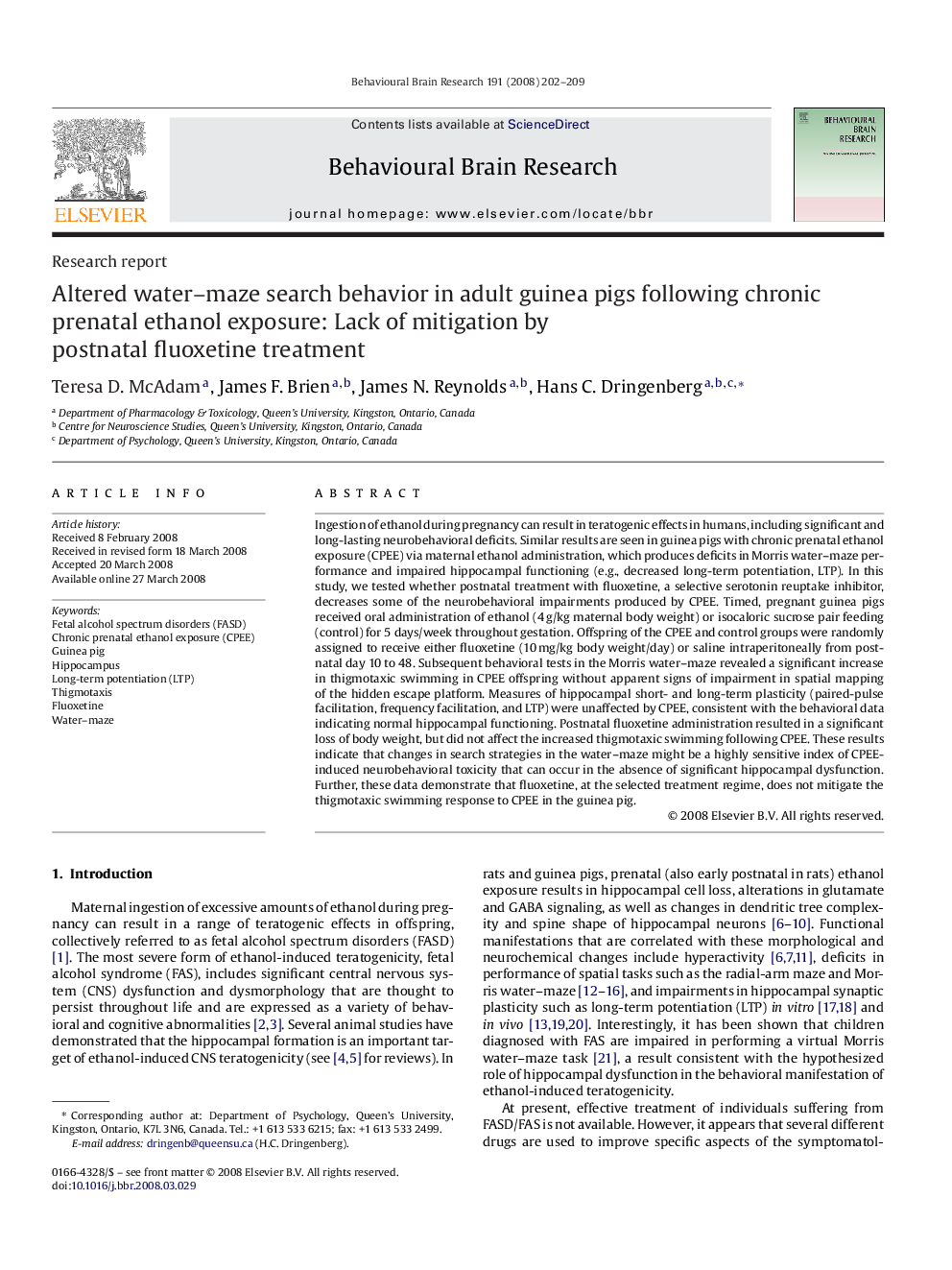| Article ID | Journal | Published Year | Pages | File Type |
|---|---|---|---|---|
| 6260214 | Behavioural Brain Research | 2008 | 8 Pages |
Ingestion of ethanol during pregnancy can result in teratogenic effects in humans, including significant and long-lasting neurobehavioral deficits. Similar results are seen in guinea pigs with chronic prenatal ethanol exposure (CPEE) via maternal ethanol administration, which produces deficits in Morris water-maze performance and impaired hippocampal functioning (e.g., decreased long-term potentiation, LTP). In this study, we tested whether postnatal treatment with fluoxetine, a selective serotonin reuptake inhibitor, decreases some of the neurobehavioral impairments produced by CPEE. Timed, pregnant guinea pigs received oral administration of ethanol (4Â g/kg maternal body weight) or isocaloric sucrose pair feeding (control) for 5 days/week throughout gestation. Offspring of the CPEE and control groups were randomly assigned to receive either fluoxetine (10Â mg/kg body weight/day) or saline intraperitoneally from postnatal day 10 to 48. Subsequent behavioral tests in the Morris water-maze revealed a significant increase in thigmotaxic swimming in CPEE offspring without apparent signs of impairment in spatial mapping of the hidden escape platform. Measures of hippocampal short- and long-term plasticity (paired-pulse facilitation, frequency facilitation, and LTP) were unaffected by CPEE, consistent with the behavioral data indicating normal hippocampal functioning. Postnatal fluoxetine administration resulted in a significant loss of body weight, but did not affect the increased thigmotaxic swimming following CPEE. These results indicate that changes in search strategies in the water-maze might be a highly sensitive index of CPEE-induced neurobehavioral toxicity that can occur in the absence of significant hippocampal dysfunction. Further, these data demonstrate that fluoxetine, at the selected treatment regime, does not mitigate the thigmotaxic swimming response to CPEE in the guinea pig.
